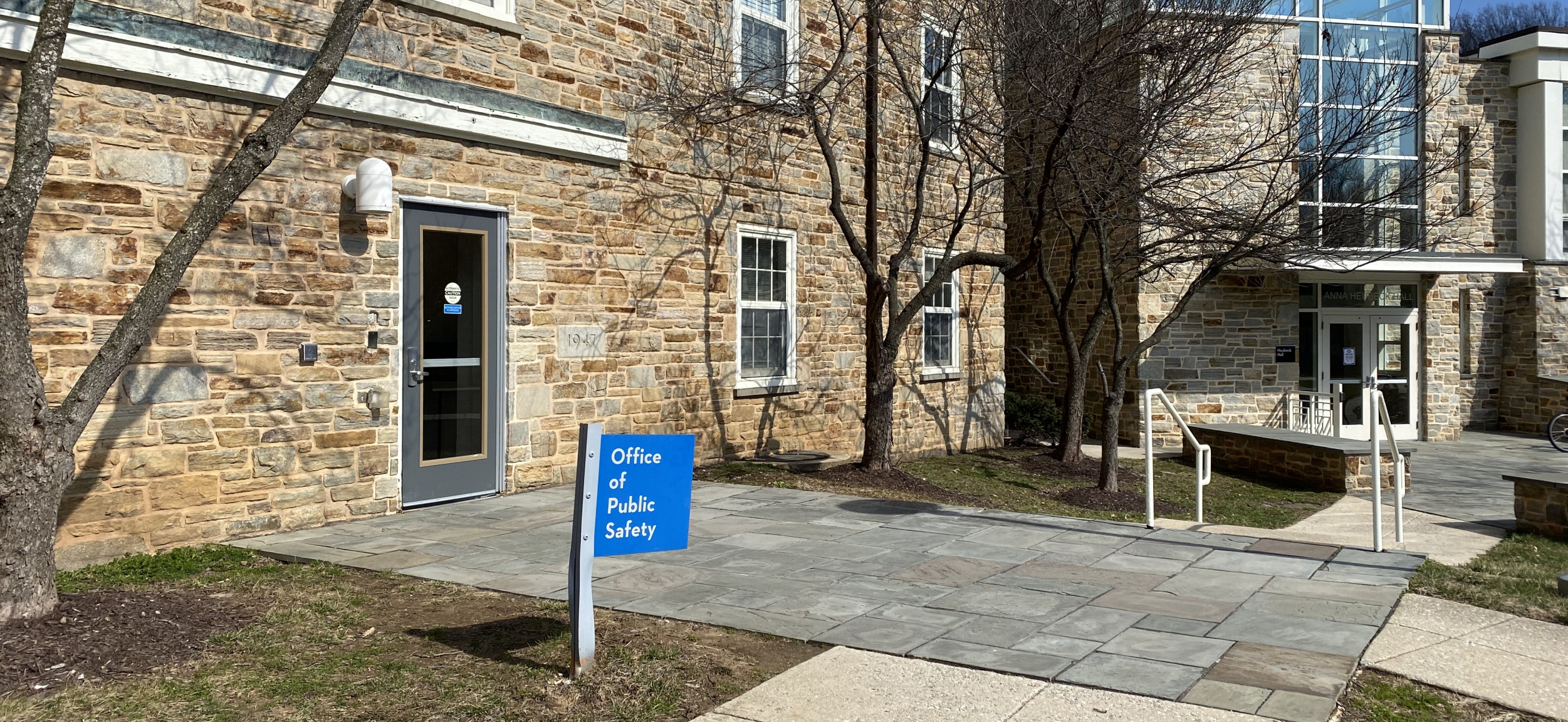A community-wide email detailing new security measures being implemented on campus was sent by Erik Thompson, Goucher’s Vice President of Campus Operations on January 20. The email cited last semester’s discovery of vandalism including racist, anti-Black graffiti as the reason for the increased security, and listed the installation of additional security cameras as one of the new safety measures being taken.
At the Community Conversation on February 15, administrative officials confirmed that Goucher is considering inviting Baltimore County Police (BCoPD) to patrol the Loop in their daily rounds. Goucher, an institution that prides itself on its progressive and innovative outlook, has never heightened security to this degree – some would argue that it has been the college’s mission to not do so.
“There are over a dozen cameras that are being installed as we speak,” Thompson said, “In addition to that, we are probably going to put in dozens of cameras this summer, as a ‘phase two.’”
Thompson confirmed that cameras will be placed in public spaces only, which includes such spaces in residence halls. Some of these cameras will be labeled with signs, indicating their location, while others will be more covertly placed. Thompson believes these cameras will serve as a strong deterrent and resource to catch potential bad actors.
“There are instances where someone will ignore [the camera] and [break a rule] anyway, or feel like this is a location where they can do something and no one will know,” he said, asserting that these potential rule-breakers “represent the antithesis of what drew students to Goucher, and drew [him] to Goucher, and we need to remove them from our community.”
When asked whether this punitive approach to campus safety was in line with Goucher’s progressive ideas, Thompson said, “we have to change. And some of those changes might mean that some of the policies, procedures, or views of things as ‘progressive’ might have to change to be something else.”
Thompson alluded that unpopularity regarding these decisions from students alone might not be enough to impact the final call.
“Unfortunately, some decisions like that, it’s less of a vote and a community agreement, and more of taking input… from the community, and making a decision that’s influenced by [those community inputs],” he said, “But it might not agree with all of those.”
According to Thompson, the idea began in December after a fire was started in an occupied building, threatening the safety of community members. BCoPD presence on campus, however, is not a done deal.
“We haven’t started the practice… something like bringing the Towson or Baltimore County police on campus, I didn’t see a pressing need to do that without actually getting some input,” Thompson said.
Despite understanding the potential psychological impact the added police presence could have on students, especially Black students, Thompson believes the ends would justify the means. If implemented, the police would be instructed only to leave their vehicles if there was life threatening danger, leaving it to the discretion of police officers on whether or not to intervene.
“It opens up the possibility of human judgment on what’s happening at any particular instance, but it still moves us a little closer to the level of safety we need,” Thompson said.
Essentially, the police cars are intended to serve as a deterrent against potential bad actors – a fear tactic to make sure students are kept in line. Goucher has always marketed itself as a progressive, highly innovative institution. The fact that we have lesser surveillance and zero police presence on campus is a part of the fabric of Goucher and its enduring academic mission.
Thompson acknowledged this, and said, “seeing a Baltimore County police car on campus, I mean, that’s so far from what Goucher was, or wants to be.”
The concerns regarding the safety of students are genuine, but to add police and highly increased surveillance across campus is reactionary and could potentially endanger Black, Brown and disabled students. Thompson said that he hoped there would be a better alternative presented before adding BCoPD to campus. I see plenty of alternatives to implement before considering police: constructing sidewalks across the entirety of the Loop so cars are no longer barreling towards students as they walk around campus, installing lights throughout Van Meter Highway and the Loop so that students do not have to walk in the dark along campus roads, and implementing community organized security, where honest and faithful students work together to ensure that their peers and Goucher’s public spaces are safe.
It is easy to look at some of last semester’s events and think that police and cameras will make us safer, and to just decide that it is the school’s mission that needs updating. But if we question the mission, aren’t we really wondering what the school’s underlying values are and contemplating its authenticity? These decisions must be made with deep-thought and consideration of every option. We must approach these issues with open minds, and listen to the community of students wholeheartedly, these students who do not just attend Goucher, but in fact are Goucher. It is their opinions that matter the most.


great job! the section about alternative solutions deserve its own article